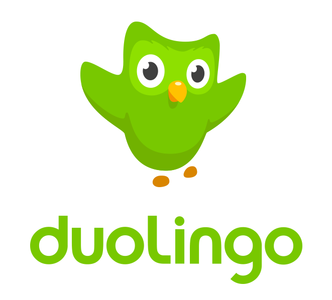
BY ANGELA DONG
Copy Editor
In today’s increasingly diverse world, language-learning apps are becoming more and more popular. One of the most well-known is Duolingo, a free app released in late 2012 that offers courses in eleven languages including Spanish, French, and German. Its developers have also released the languages of Norwegian and Esperanto in beta, and nine others, including Russian and Klingon, are currently being built.
Languages are divided into units such as “Basics 1,” “Food,” “Household” and “Possessives,” each of which contains up to 10 discrete vocabulary-building lessons and one “Weakest Words” lesson. The lessons each contain around ten vocabulary words, which users are able to learn through exercises in reading, writing, listening, speaking and translating. Successfully completing units earns users Lingots, which can be used to buy power-ups, bonus units such as idioms and outfits for Duo, the app’s owl mascot. The app itself is ad-free and does not offer in-app purchases.
I downloaded Duolingo around a year ago and used it as a regular supplement to my French classes. At the end of last year, I began self-studying and was able to finish French 3 over the summer. Although no classes above French 3 are offered at UHS, Duolingo has helped me continue my studies.
I’ve found that Duolingo is extremely helpful for building and remembering vocabulary. In my opinion, the Lingot system is a good replacement for in-app purchases, especially since it motivates users to complete more units in order to unlock bonus curriculum. Daily notifications and rewards for “streaks” serve as reminders to complete each unit, while a “Practice Weak Skills” option at the bottom of the home screen makes it easy to review previous units. However, I wouldn’t recommend studying solely using Duolingo, since it focuses more on individual words than general concepts such as tenses or syntax.
The app keeps its users engaged by decreasing users’ strength in specific units over time, making regular review necessary to keep each unit’s progress bar full. It also implements a checkpoint system between sections of units. In addition, a “test out” option is available throughout each unit, allowing users to bypass the remaining lessons by completing a unit test in which they are allowed a maximum of four wrong answers.
Duolingo is accessible as a website, and its app version is available for both Apple and Android devices. It was the recipient of Apple’s 2013 App of the Year Award and currently boasts over 100 million users worldwide. Reviews of the app criticize its heavy reliance on translation, but it receives much more praise for its multiple teaching methods, variety of languages, and aesthetically pleasing interface.
Categories:
Duolingo: an app review
October 24, 2015

The duolingo app logo (Wikipedia)
1
Tags:
Donate to Sword & Shield
$180
$1000
Contributed
Our Goal
Your donation will support the student journalists of University High School. Your contribution will allow us to purchase equipment and cover our annual website hosting costs.
More to Discover













